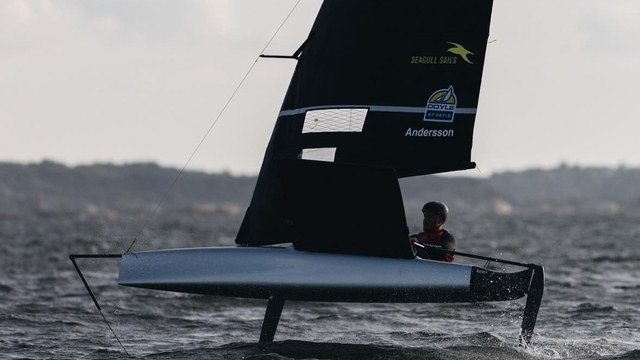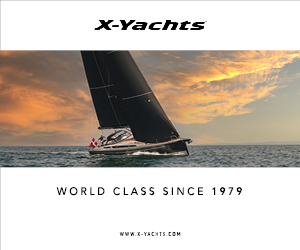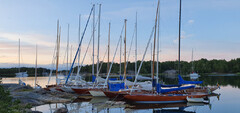Traditional Metre yac'THE PERFECT RACE'
Changes to the race format, announced in the 2011-12 Rule and Notice of Race have received widespread approval from a broad cross section of sailors, syndicates and the media.
A number of those opinions were captured by Andrew Cheal in the current Volvo Ocean Race podcast - Gybe Talkin' - along with the thoughts of race CEO Knut Frostad.
Here's a snapshot of what they said.
Pedro Campos, the head of the Telefonica syndicate during the 2008-09 race:
"We have been giving our ideas and proposing small changes because we have been asked by the organisers for our opinions. I think things are going in the right direction.
"In general I agree this (Rule) is the way to in trying to make more attractive and competitive. You don't need big amounts of money to win. You can be competitive with medium budgets. It makes no sense that money is making the difference."
Campos added that he supported any measures to encourage more new teams into the race. "This is the goal and we are all supporting this. Behind our interest in a Spanish team winning the race, we are also interested that the race is a success, particularly as we in Spain will organise the next three starts of the race.
"From the very beginning we have been supporting Knut's philosophy. One of the most attractive things of the Volvo Ocean Race is the high technology involved.
"The Volvo has all the technical aspects of the America's Cup - and the adventure of ocean racing. I feel now that the Volvo is the perfect race."
Ken Read, the PUMA skipper, who led il mostro to second place overall in 2008-09:
"This Rule eliminates the need to have a huge budget teams but it doesn't do it so radically that this isn't still the grand prix of sail boat racing right now," he said.
"You can still create a budget out of all these new rules which is substantially more than we spent in the last race and we had pretty reasonable success.
"Trying to make mileage a little more important and putting more emphasis on the offshore stuff is the smart way to go.
"I like the youthful enthusiasm that the Under-30 rule brings. Eyes-wide open, great young sailors who just need a chance. It's a good thing for the race."
Torben Grael, the winning skipper of the 2008-09 race on Ericsson 4:
"There has been a lot of emails going back and forward after the race and even during the race and it's good to see something good coming out."
Matt Sheahan, Racing and Technical Editor of Yachting World:
"I see containment as a better option. Cost capping always makes you wonder how they are going to police it," he said. "It's a bit like taxation, you can have plenty of rules to say you shall not do this but there are so many ways around it.
"Whereas cost containment, as outlined in these revised rules, is going to be much easer to police and to get the teams to understand.
"The thing that will have the biggest impact is the rule on restrictions on race sails. It's a huge reduction for a boat that has to sail around the world."
Andrew Hurst, Editor of Seahorse magazine:
"Turning the picture around, working out first what is needed to win the race and controlling those elements as best you can, that seems to me to be to be a positive approach for both the Volvo Ocean Race and for those trying to put together the race entries," he said.
"Too often big sport events suffer by chasing the technical rainbow and leaving behind the reality of the sporting situation.
"A race like this should offer incentives to not just the biggest teams. Not every sponsor first enters a new sport at the top end of the competitive spectrum.
"By narrowing the advantages enjoyed by the most powerfully-backed entries you automatically improve the expectations for those with less in the bank. That is a great step for the race, great for the sailors and sponsors, and most important it will ultimately improve the contest."

























